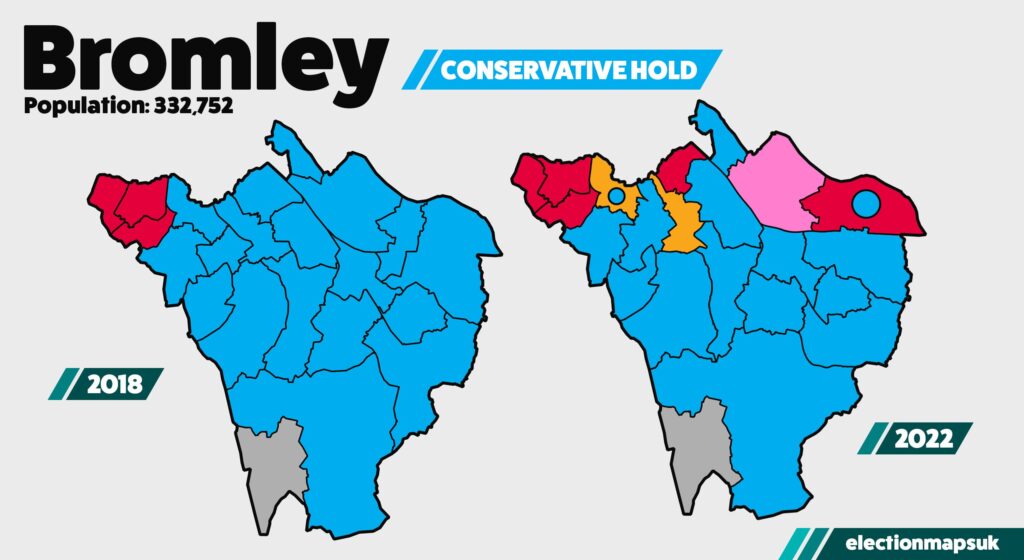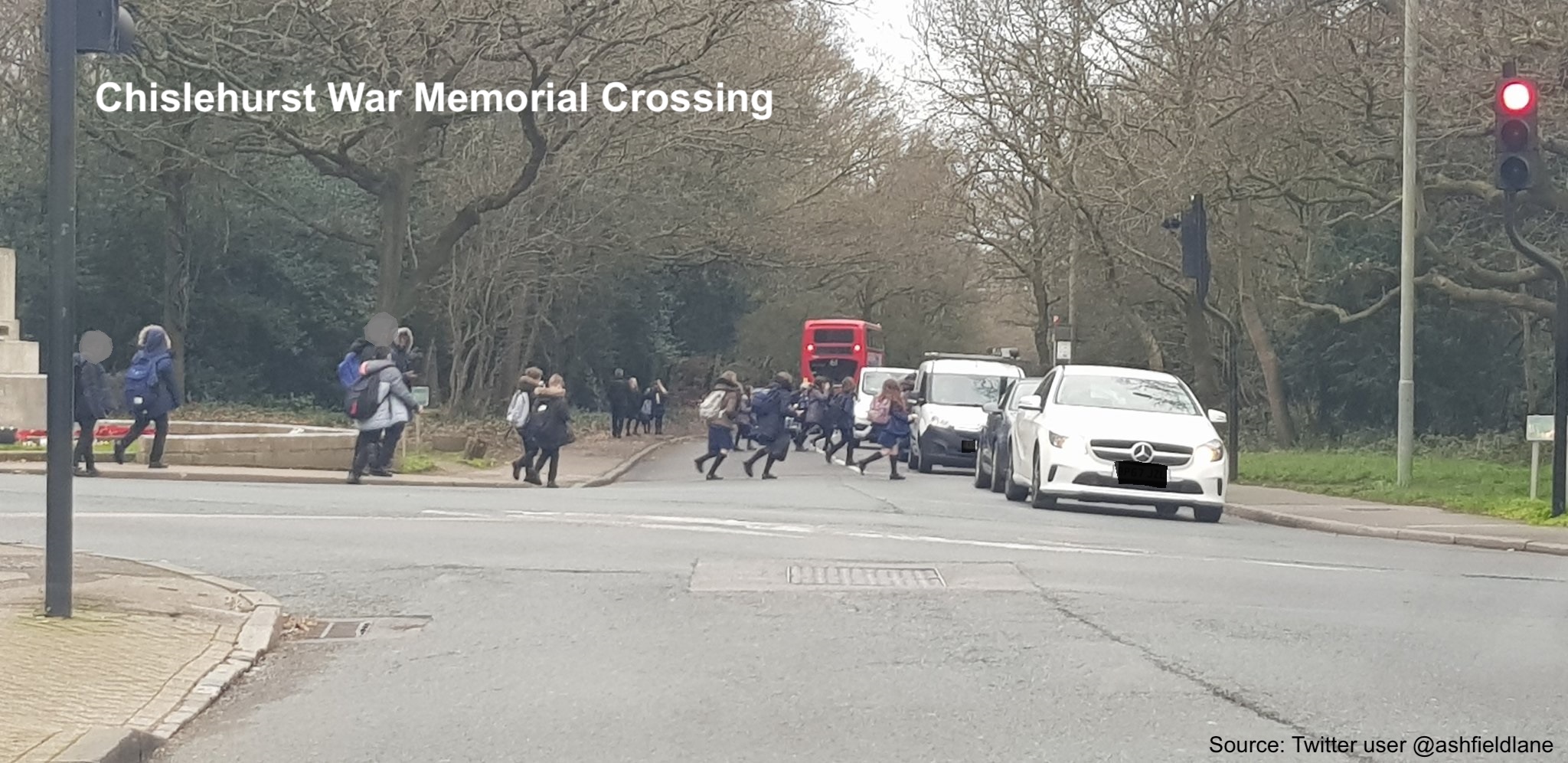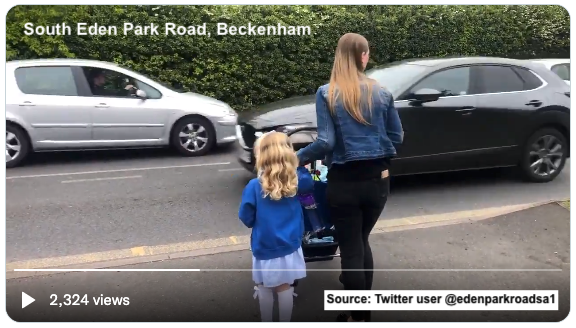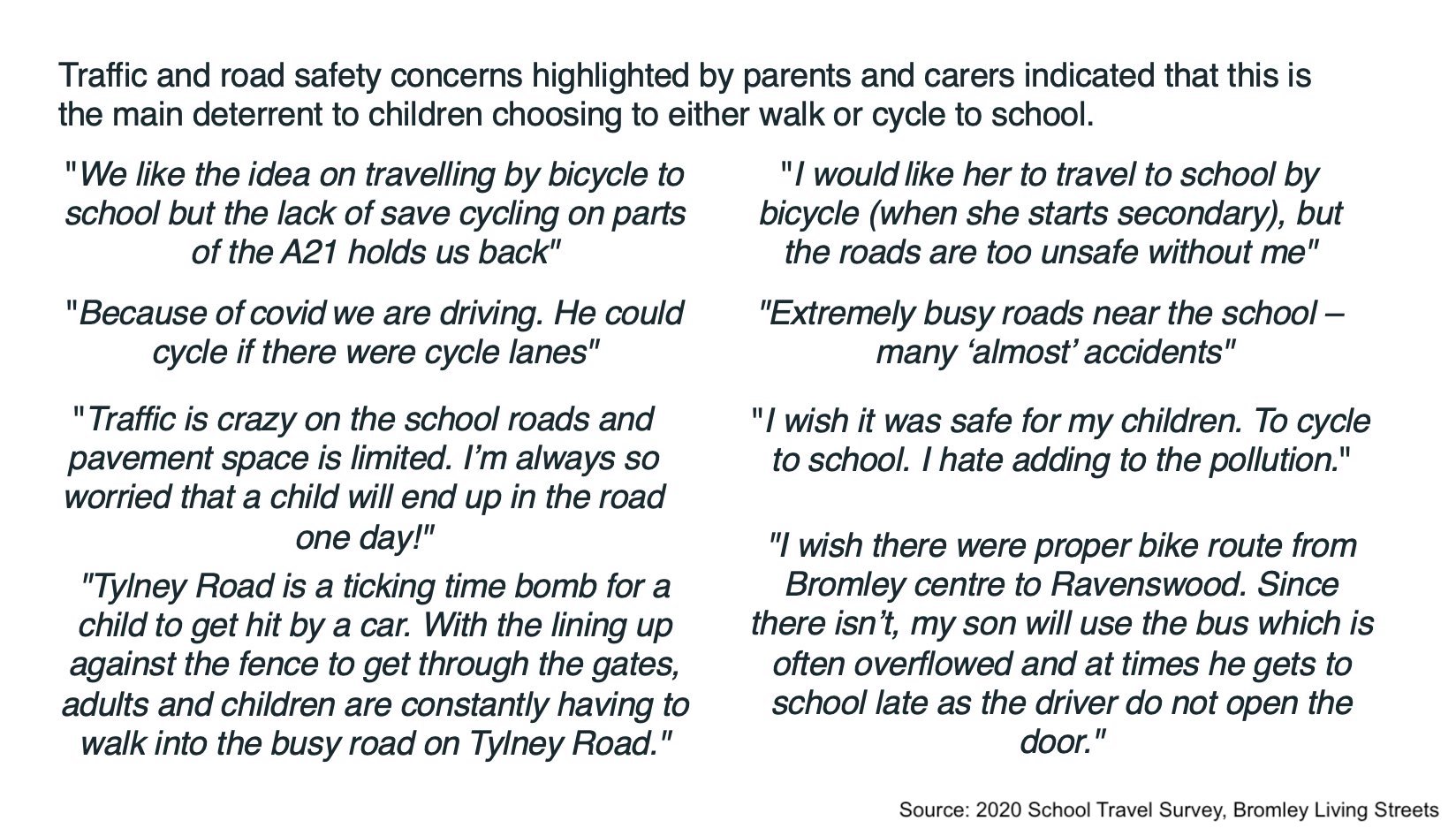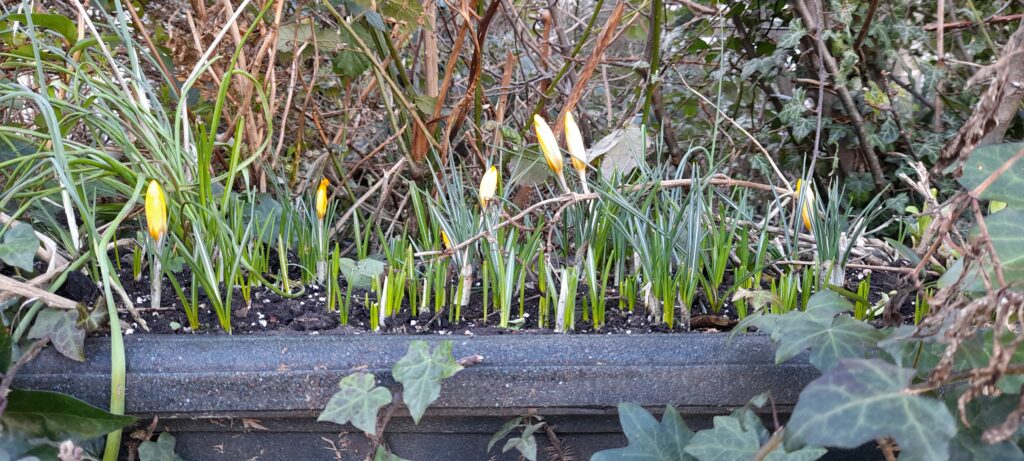The local elections brought in a number of new councillors to represent wards across Bromley. As shown below, the main changes were Liberal Democrat councillors in Beckenham Town & Copers Cope and Bromley Town, Labour councillors in Plaistow and St Mary Cray, and the independent party Chislehurst Matters in Chislehurst. Bromley remains Conservative-controlled with a majority of 14 councillors. Many wards that remained Conservative also had new ward councillors selected.
What does this mean for ongoing community-led efforts to improve the safety and liveability of our streets? The good news is that many new councillors take a supportive stance on safer streets, air pollution, encouraging walking and cycling, and climate change. Moreover, the range of councillors elected promises vibrant debate on many topics.
CLEAN AIR
Bromley Liberal Democrats supported Mums for Lungs election pledges, which included a call for a clean air cabinet member, a diesel-free borough by 2030, advocacy to phase out wood burning and the goal of delivering a School Street at every school by 2025 (with an alternative package of road safety measures where temporary road closures are not feasible).
SUPPORT FOR CYCLING
Bromley Liberal Democrats, Bromley Labour, Bromley Greens and Chislehurst Matters all supported Bromley Cyclists’ call for the development and implementation of an active travel strategy designed to increase the cycling trip share in Bromley from 1.8% to 5% by 2026/7. While the Conservatives did not provide a formal endorsement, Councillor Michael Tickner (Beckenham Town & Copers Cope ward) crucially acknowledged by email that: “safe cycle-friendly infrastructure has to be provided first in order for more people to take up cycling, not the other way round”.
CLIMATE ACTION
Bromley Liberal Democrats, Bromley Labour and Bromley Green Party supported a coalition of community and faith-based groups calling for Bromley Council to declare a climate emergency and produce a plan to reach net-zero greenhouse gas emissions for all activities across the borough. Climate action, active travel and road safety are tightly-linked issues as reaching net-zero will require a large shift towards walking, cycling and public transport use in Bromley.
In addition to this, all parties covered issues related to air quality, safer streets and more support for walking and cycling for all, such as the lack of a safe crossing at Chislehurst War Memorial, the lack of safe crossings on South Eden Park Road, and concerns over safety raised in the 2020 School Travel Survey conducted by Bromley Living Streets.
So what changes can we expect to see, and how can local communities support all ward councillors to give Bromley residents more sustainable travel choices and cleaner air? In this blog post we set out four priorities for change and four things that you can do to support councillors.
FOUR PRIORITIES FOR ACTION
1. Safe pedestrian crossings
Local centres across Bromley should have pedestrian crossings – either zebra or signalised crossings – to create safe walking routes to local parks, schools, high streets, and public facilities. These routes should be provided pro-actively, instead of waiting for a minimum number of casualties to justify a crossing at any given location.
2. A cycle network
Bromley lacks a joined-up network of separated cycle lanes across the borough, which is a major barrier to cycling for many residents. A network of protected cycle lanes connecting local centres across the borough will make it safer to switch to cycling as a low-cost travel option that reduces air pollution, congestion, and increases daily exercise.
3. Measures to reduce speeding
Until now Bromley Council has only taken limited action on speeding, often deferring responsibility to the Metropolitan Police and installing advisory warning signs that make only minimal difference to driver behaviour. Traffic calming measures should be introduced to reduce vehicle speeds and improve road safety.
4. School Streets
A School Street is a temporary restriction on motor vehicle traffic outside schools during drop-off and pick-up hours, to improve air quality and traffic safety at the school gate, and encourage parents to walk or cycle instead of driving. Over 500 School Streets have been introduced in London, mostly since the start of the pandemic. Bromley Council received funding from TfL for 11 School Streets but only six have been implemented so far.
FOUR WAYS TO ACTIVELY SUPPORT CHANGE
1. Make your voice heard
Your ward councillors are accountable to you, and you can write to them to ask for stronger action to make it safer to walk and cycle locally. Walking and cycling schemes can be sensitive when they impact things like on-street parking or right-of-way for drivers, so it’s important that councillors hear from those supporting change. You can copy your local residents’ association and Bromley Living Streets in on correspondence with councillors. Additionally, you can submit questions to Bromley Council to raise concerns at its Environment Committee public meeting. You can also subscribe to newsletters from Bromley Living Streets to stay up to date.
2. Start small
Alongside campaigns calling for safer streets, we can also push for change by working with the organisations and groups to which we are already connected. Reach out to your child’s school to ask about setting up a School Street, or work with your local church, faith group, community organisation or sports club to encourage and enable people to walk, cycle or take public transport to meetings or activities where possible.
3. Leadership from community and business organisations
Many organisations are reluctant to take openly political positions, however, this doesn’t mean you cannot give general support to measures that would improve road safety, air quality, and enable active travel. Moreover, as a key local stakeholder you could also contribute to shape how new schemes are designed and implemented to ensure that they meet local needs. For businesses this also makes good financial sense: more walkable streets are important to the local economy, pedestrians and cyclists spend 40% more in local shops than those travelling by car, and unsafe levels of air pollution are beginning to have a negative impact on property values.
4. Don’t give up!
Unfortunately, these changes won’t happen overnight. Continued support is needed from residents to encourage councillors to support safer streets, and hold them to account if they don’t deliver on their commitments.
